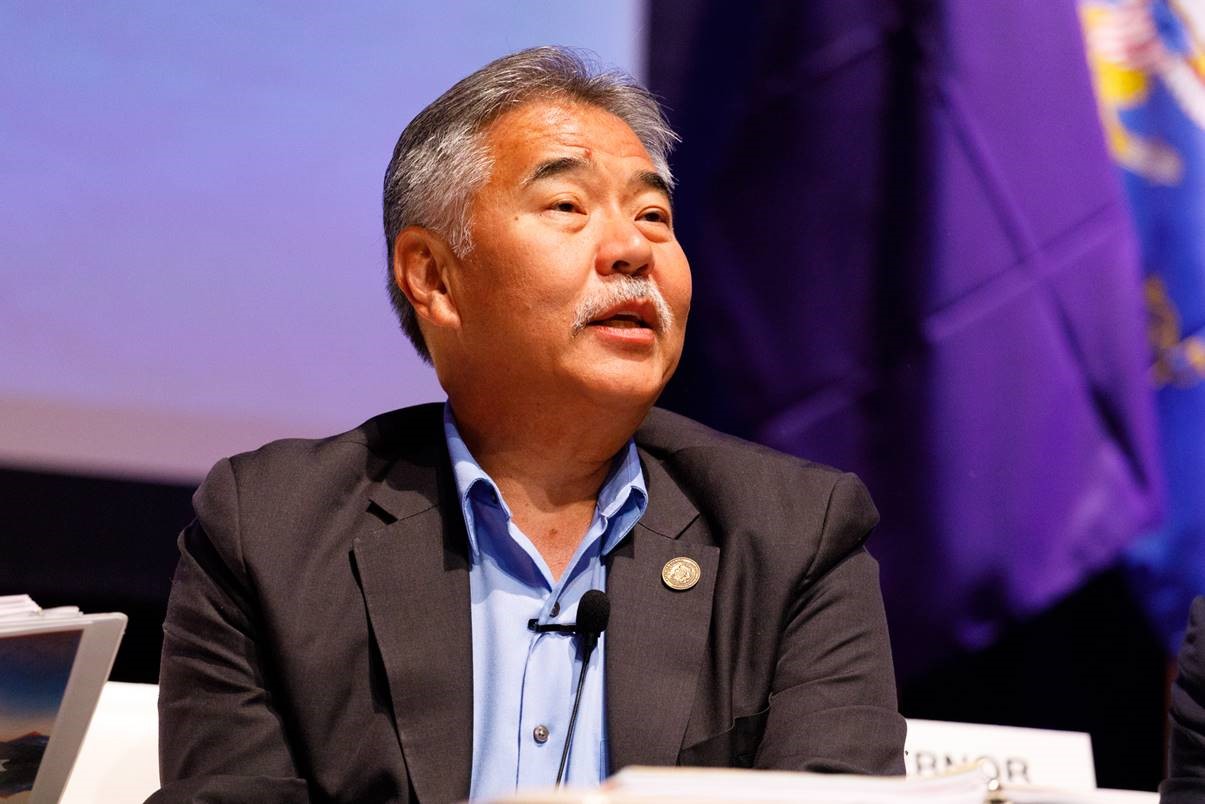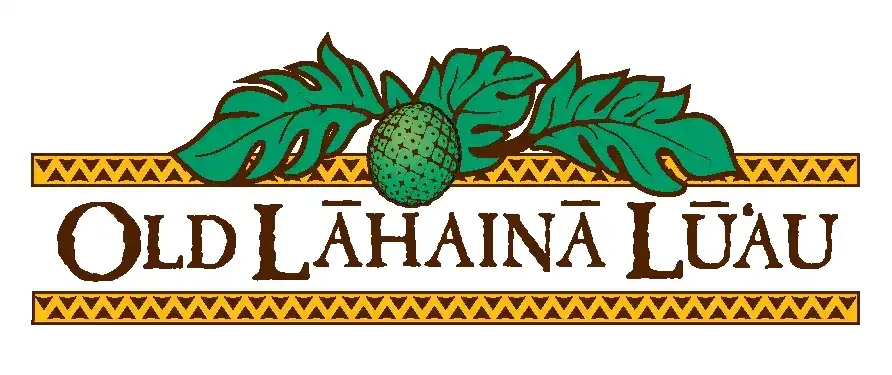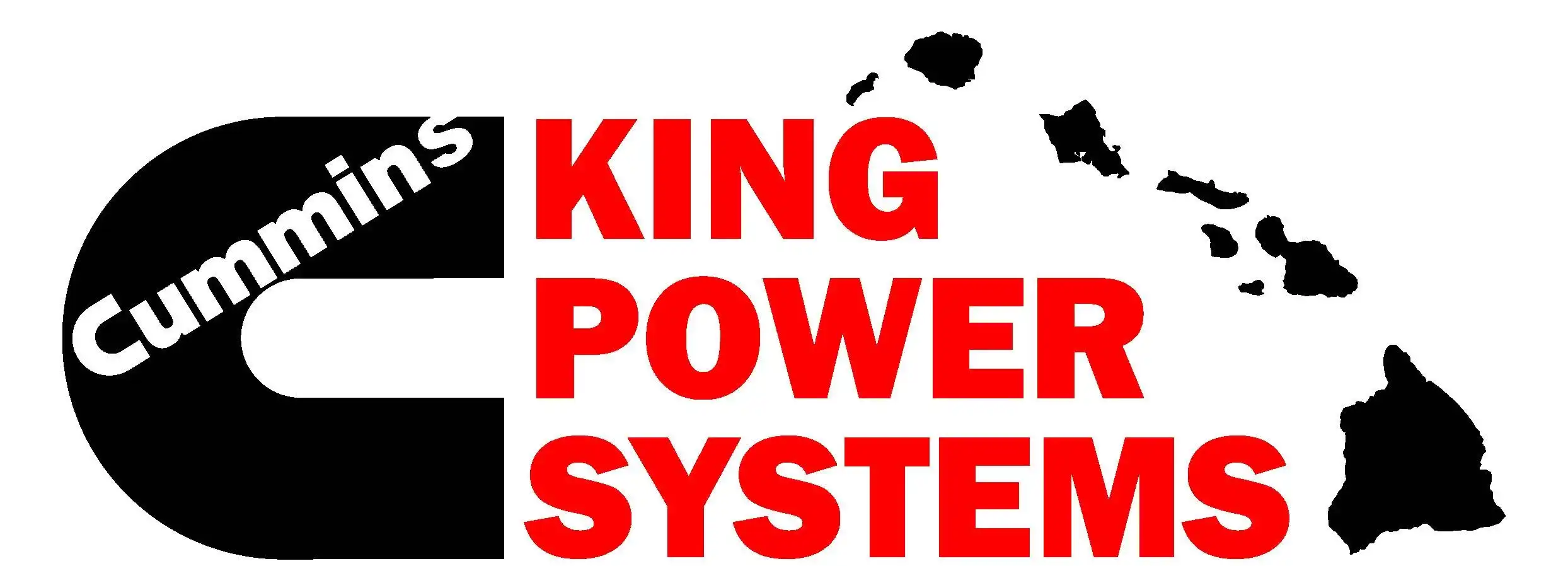Governor Ige Intends to Veto 11 Measures

File image of Gov. Ige speaking about his role as vice chair of the WGA. Courtesy photo.
Gov. David Ige has notified legislative leaders and key lawmakers of his Intent to Veto list, which includes 11 measures. The Hawai‘i State Constitution requires the governor to notify the Legislature of the Intent to Veto list no later than the 35th day after adjournment, which is June 25.
On July 10, any measure that the governor has not signed or not vetoed will become law without his signature. He released the following list along with his rationale for rejection each of the measures:
INTENT TO VETO LIST:
HB1621 RELATING TO CONSUMER PROTECTION
Part 1 of this measure prohibits merchants from charging any fee to repair, replace, or refund damaged or defective goods. Part 2 requires high turnover restaurant franchises to disclose their non-participation in national advertising campaigns and prohibits the franchisor/restaurant chain from limiting or restricting the disclosure.
Rationale: Part 2 of the measure provides a vague definition of “high turnover restaurant.” As written, the law would be unenforceable as the measure does not provide explicit standards to measure conditions such as the average duration of a customer’s stay or determine a menu’s price range. The measure also exempts fast food restaurants, which runs counter to current consumer protections as the majority of complaints received by the Office of Consumer Protection (OCP) regarding this issue involve fast food chains.
HB2071 RELATING TO LAW ENFORCEMENT
This measure appropriates funds to establish a Law Enforcement Standards Board for the certification of county police officers, state public safety officers, and all state agency employees with police powers. The board will be responsible for developing minimum standards, establishing training programs, and providing continuing education programs for all law enforcement officers.
Rationale: The Commission on Accreditation for Law Enforcement Agencies (CALEA) has already created professional standards that public safety agencies strive to achieve. Furthermore, the measure appears to hold the board responsible for establishing and maintaining a training program through other agencies and institutions. HPD alone currently has 55 training staff, meaning that the $100,000 appropriated for the Law Enforcement Standards Board will be insufficient to support statewide training standards programs.
HB2507 RELATING TO PRESCHOOLS
This measure removes preschools from the superintendent’s scope of authority and clarifies that the Executive Office on Early Learning Director may authorize preschool personnel to access a student’s immunization registry information. The DOE will still be required to administer special education and Title I funded programs at the pre-kindergarten level.
Rationale: This measure could unintentionally impact pre-kindergarten programs on certain DOE campuses. The administration is doing its due diligence and proceeding with caution to ensure that no services are jeopardized and all preschools can continue to operate with no interruption.
HB2589 RELATING TO MOTORCYCLES
This measure authorizes the Department of Transportation to allow two-wheeled motorcycles to drive in designated shoulder lanes.
Rationale: The shoulder lane is designated to accommodate stopped vehicles and emergency vehicles on highways, as well as bicycles on arterial roadways. There is concern that this will compromise road safety and create more dangers for operators of all vehicles.
SB48 RELATING TO TECHNOLOGY
This measure merges the Hawai‘i Strategic Development Corporation (HSDC) and the Hawai‘i Technology Development Corporation (HTDC) into the Hawai‘i Innovation, Technology, and Research Corporation.
Rationale: This measure creates operational issues and disrupts the core functions of HTDC. First, it eliminates 1.5 permanent positions and 6.25 temporary positions from HTDC. It appropriates general funds to convert these positions from special funds, but does not create the new positions to replace those eliminated. Second, the additional amendments to HTDC’s budget, when combined with the amendments in the supplemental appropriations bill,
create a net reduction in HTDC’s core resources that will adversely impact its operations.
SB2407 RELATING TO MEDICAL CANNABIS
This measure authorizes the use of medical cannabis as a treatment for opioid addiction, substance use, and withdrawal symptoms resulting from the treatment of these conditions.
Rationale: The Department of Health already has a formal evidenced-based petition process, made available annually to patients and physicians, so patients and physicians can apply to add qualifying conditions to the list of uses for medical cannabis.
SB2519 RELATING TO THE ENVIRONMENT
This measure authorizes the Agribusiness Development Corporation (ADC) to enter into contracts with private businesses to remove select municipal solid waste, glass, and food/green waste from the waste stream for use in other businesses, provided that it benefits agriculture and agriculture-related projects.
Rationale: This measure will interfere with the counties’ authority to direct the disposal of municipal solid waste to specific locations under Section 340A-3, Hawai‘i Revised Statutes. The statute authorizes counties to require that solid waste be disposed of at designated facilities or areas. It is unclear whether ADC’s or the counties’ authority would have priority when determining control over the municipal waste disposal.
SB2524 RELATING TO COUNTY LAND USE REQUIREMENTS
This measure requires the owner of any parcel of land subdivided as a condominium property regime in agricultural or preservation lands, to provide public notice of sale no later than ninety days after the sale of the parcel. This measure also prohibits residential use of sheds or other structures on agricultural lands unless permitted under county ordinances and rules.
Rationale: This measure potentially allows large plots of agricultural lands to be subdivided into “gentleman” farms, a use that is inconsistent with state land use policy and with the administration’s goal of doubling local food production by 2020.
SB2699 RELATING TO THE TRANSIENT ACCOMMODATIONS TAX
This measure attempts to include resort fees in gross rental proceeds that are subject to the Transient Accommodations Tax (TAT).
Rationale: This measure creates an extensive and ambiguous expansion of the TAT. The vague language could subject restaurants, spas, and other businesses located in hotels to add the TAT to their services. Currently, the Department of Taxation imposes the TAT on mandatory resort fees. The additional taxes imposed by this measure would result in significant increases in accommodation costs for our residents and visitors staying in Hawai‘i hotel properties.
SB2919 RELATING TO PUBLIC LIBRARIES
This measure establishes a pilot program to generate revenue through the lease of public library lands to support the mission of the public library system.
Rationale: In general, executive orders set aside public trust lands for public purposes. If those lands are no longer needed for library purposes, executive orders should be withdrawn and the lands returned to the Department of Land and Natural Resources (DLNR). Further, the Hawai‘i State Public Library System does not have the resources and expertise to undertake the leasing of public lands for purely income generating purposes.
SB2992 RELATING TO CAMPAIGN FINANCE
This measure exempts signs and banners from certain election law disclaimer requirements relating to advertisements with the exception of signs and banners advocating the passage or defeat of a ballot issue, which are still required to contain the name and address of the candidate, candidate committee, or non-candidate committee paying for the sign or banner.
Rationale: The Campaign Spending Commission is concerned that exempting signs and banners from certain election law disclaimer requirements will reduce transparency in campaign finance.










